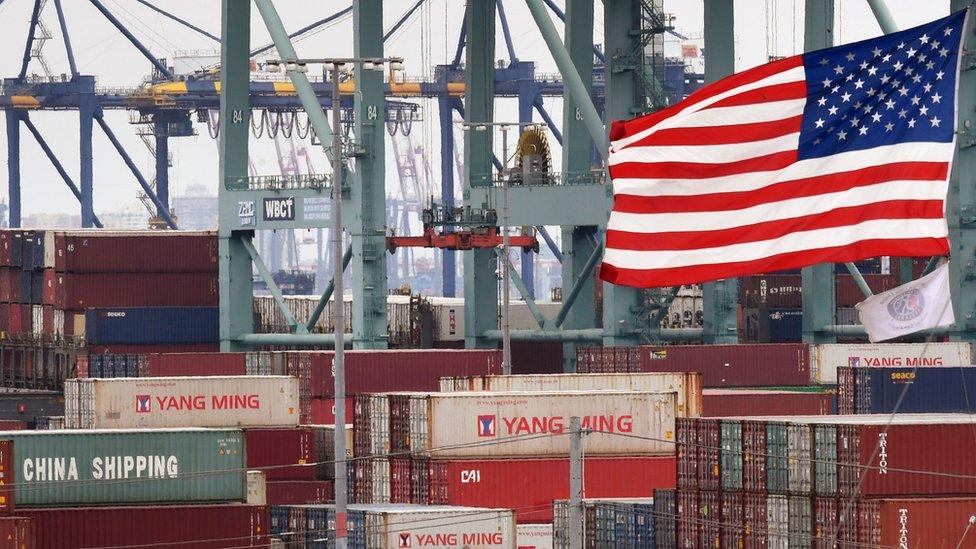China says it is 'ready to work with US'
- Published
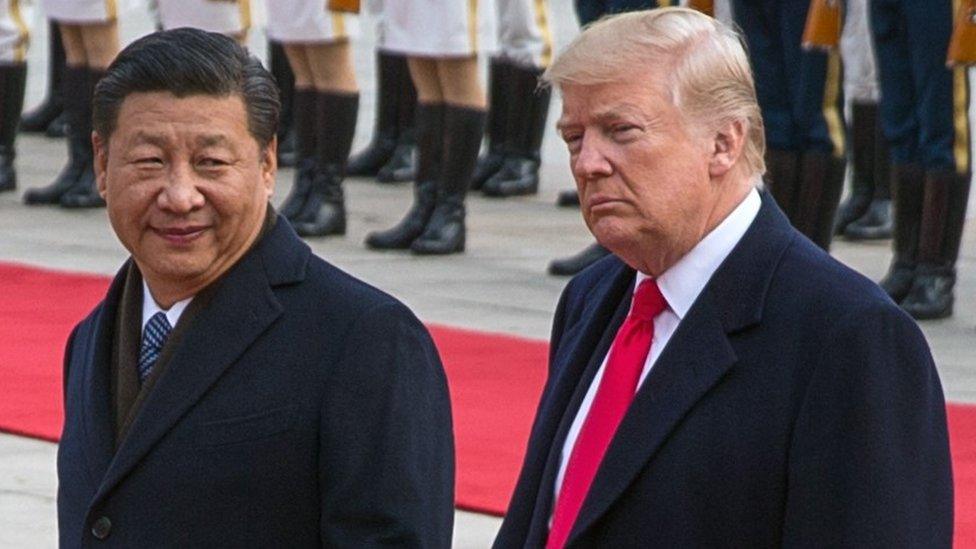
Xi Jinping and Donald Trump are trying to solve a trade tariff war
China has said it is "ready to work" with the US, suggesting progress in trade talks between the two countries.
It said it would be willing to work with the US to "implement the important consensus" reached at December's G20.
At the Buenos Aires summit the two countries agreed to suspend new trade tariffs for 90 days to allow for talks.
China's statement comes after President Donald Trump tweeted "big progress" was being made in relations after a call with Chinese President Xi Jinping.
Allow X content?
This article contains content provided by X. We ask for your permission before anything is loaded, as they may be using cookies and other technologies. You may want to read X’s cookie policy, external and privacy policy, external before accepting. To view this content choose ‘accept and continue’.
In Saturday's tweet, the US president said "talks were moving along very well".
Sunday's statement from Lu Kang, the spokesperson for the country's foreign ministry, appeared to confirm President Trump's optimism.
"China stands ready to work with the US to implement the important consensus reached by President Xi Jinping and President Trump in Argentina, expand co-operation on the basis of mutual benefit, manage differences on the basis of mutual respect," Mr Lu said.
Prior to the G20 meeting in Argentina, the US had warned it was considering 25% tariffs on $200bn (£152bn) of Chinese goods - more than double the 10% initially planned.
The White House says the tariffs are a response to China's unfair trade policies, which Mr Trump blames for helping to create a huge trade deficit.
What's the background to the trade war?
Mr Trump campaigned for president on a pledge to make trade fairer for the US, and repeatedly blamed China's trading practices for making American manufacturers less competitive.
The US imposed tariffs on a number of Chinese products, including consumer and industrial items such as handbags and rice.
China responded in kind, and both sides - the world's two largest economies - ended up imposing tariffs on billions of dollars of goods.
Has Trump kept his promises?
The US has hit $250bn of Chinese goods with tariffs since July, and China retaliated by imposing duties on $110bn of US products.
Tariffs ended up raising costs for American companies. Analysts say this is one of a number of factors that have put pressure on markets in recent weeks.
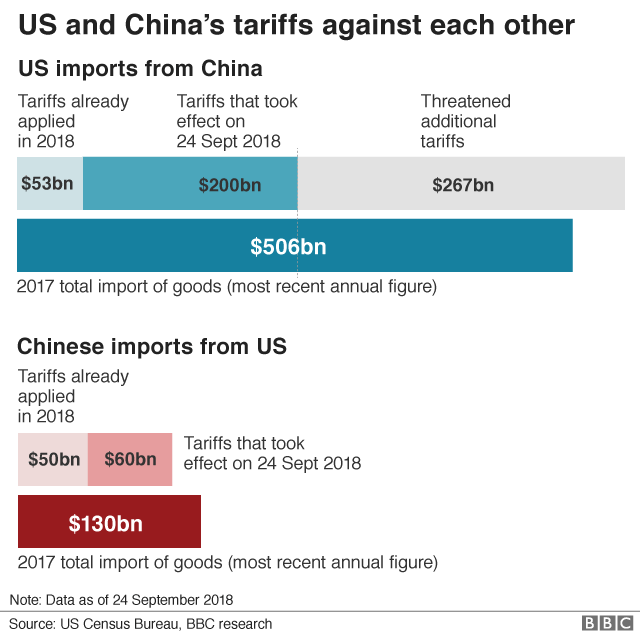

What's changed in recent weeks?
In early December, Mr Xi and Mr Trump met after the G20 summit in Buenos Aires for the first time since their trade war started.
Mr Trump agreed not to boost tariffs on Chinese goods from 10% to 25% on 1 January, and the US said China would buy a "very substantial" amount of agricultural, industrial and energy products.
The details of that deal are yet to be ironed out, however.
Negotiators from both countries have been in touch over recent weeks and face-to-face talks could take place in January.
- Published29 December 2018
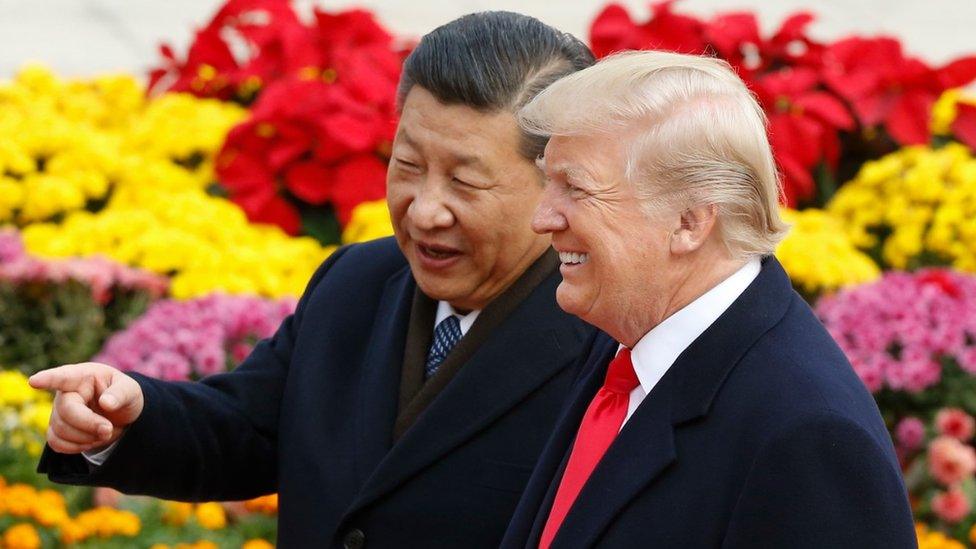
- Published2 December 2018
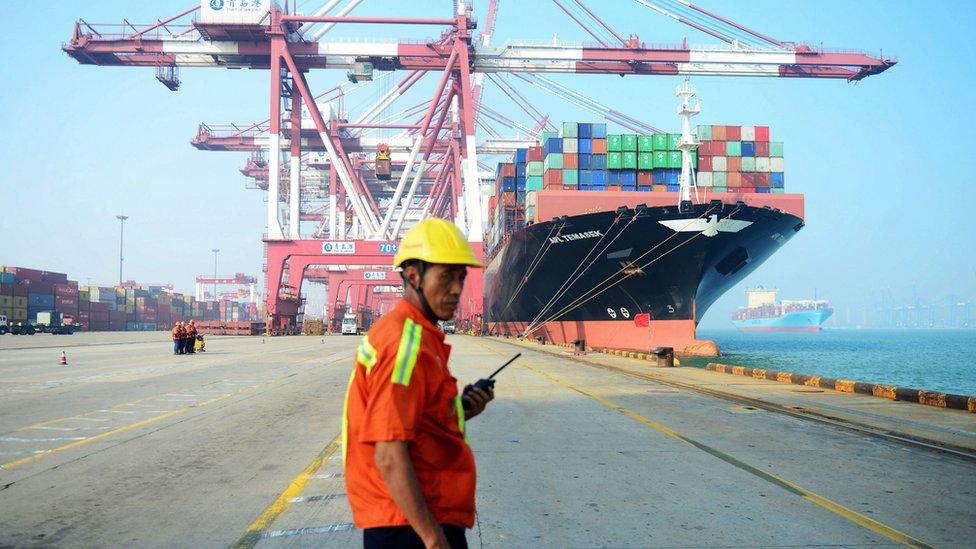
- Published2 December 2018
- Published16 January 2020
